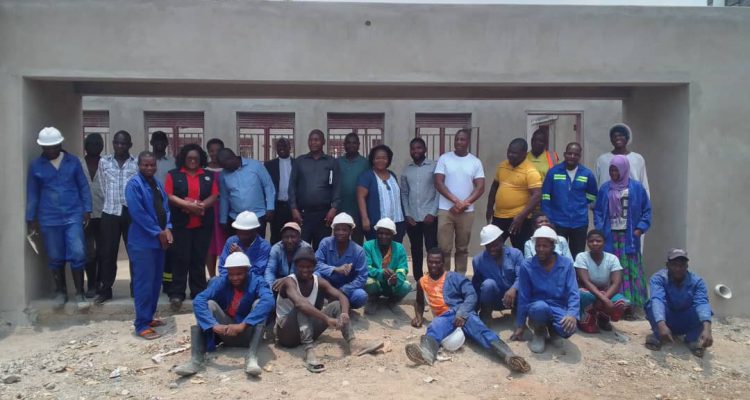
The government’s Malawi ambitious “Connect a School” project which has seen the Malawi Communications Regulatory Authority (MACRA) constructing Information Communication Technology (ICT) laboratories in constituencies across the country has faced a major setback as the fuel crisis coupled with delays in supply of materials is affecting construction works in some areas, Malawi 24 can reveal.
Leader of a delegation of a joint parliamentary committee of education and media, Bester Awali, lamented the situation when the committee inspected construction works of an ICT laboratory at Namikombe Community Day Secondary School in Balaka district.
The project, which started in June 2024,was initially expected to be completed within 120 day,s, but as it stands, it has missed the deadline.
“As a joint committee, we are happy with the quality of work undertaken by the contractor.However, we are concerned with the pace at which the project has taken because of among other issues, fuel crisis as well as the challenges interms of delivery of construction materials,” said Awali.
He added: “We are excited that MACRA has arrived at some solutions to help in expediting the works.”
In his remarks, the institution’s board member, Fr. Francis Damaseke expressed optimism that the project would be completed by December 2024, citing that the institution is tirelessly working to solve the challenges.
“As MACRA, we are well aware of the delays interms of the supply of materials.Solutions are been sought and one of them is to increase the number of suppliers,” said Fr.Damaseke.
Meanwhile, Managing Director of Erid Building Contractors, a firm handling the project, Idrissa Khalid Beyadi has pledged to complete the works by 20th December, 2024.
The government of Malawi through MACRA is facilitating the construction of the smart ICT laboratories in constituencies across the country with each laboratory having a 60 computer capacity and internet connection.
The main agenda of the project is to ensure that no one is left behind in accessing digital services and technology.
In the first phase of the project, 75 schools have been earmarked to benefit while the second phase will see additional 120 schools benefiting from the project.
The project is being funded by the Universal Service Fund (USF).














